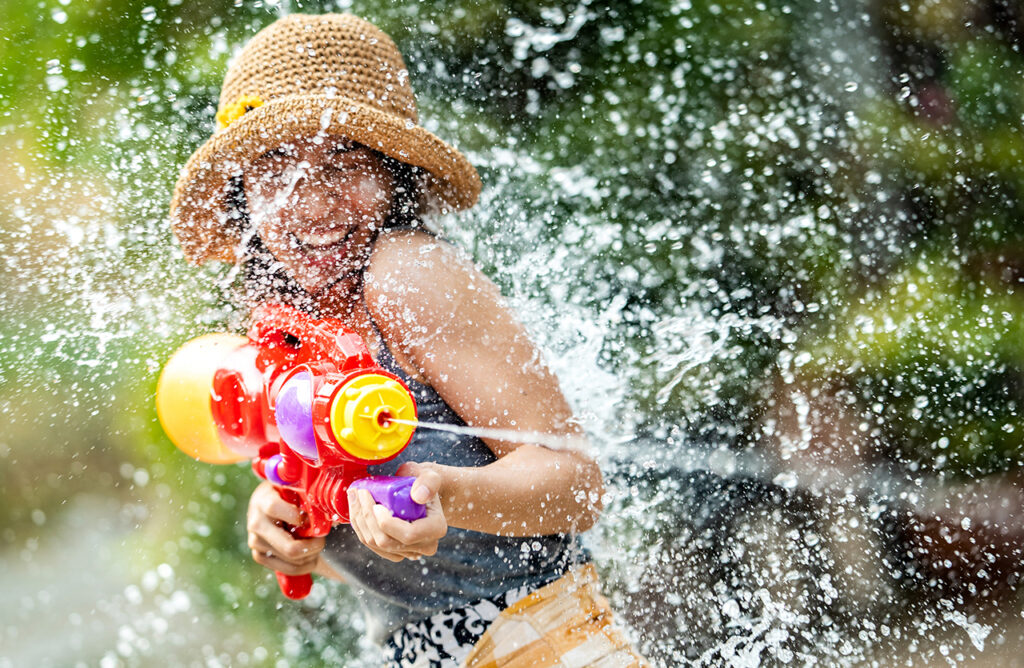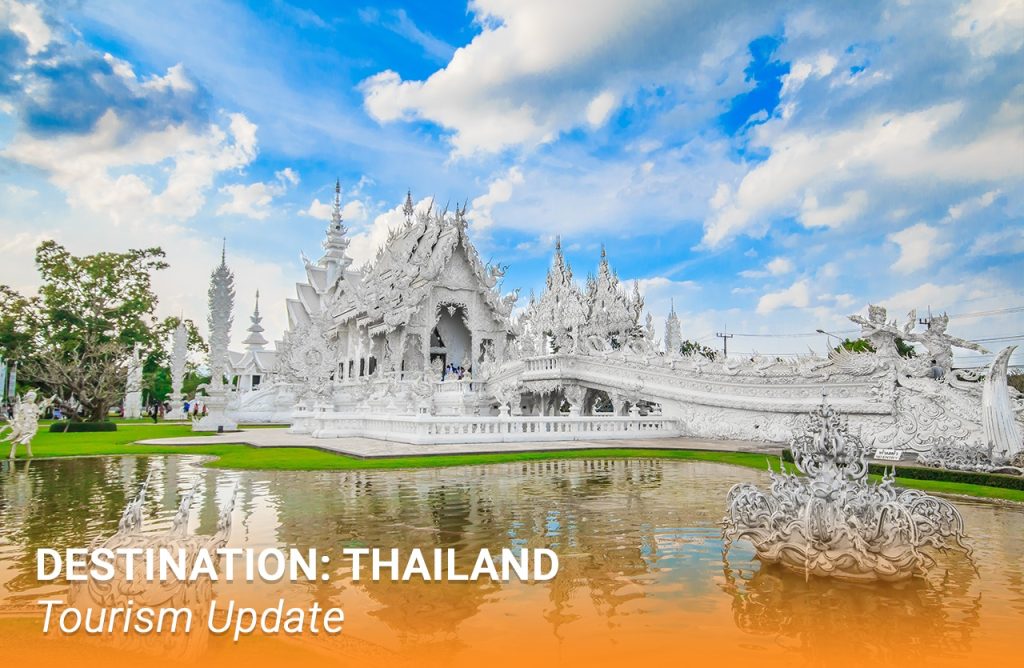
This month, Thailand will host the annual Songkran festival. Officials have confirmed that celebrations – including the world-famous water fights – will be allowed to go ahead, provided certain health and safety protocols are put in place.
Scheduled for 13-15 April 2022, the three days of the festival are celebrated throughout Thailand as a national holiday, during which many city residents travel back to the family home for a long weekend. In recent years, the festival and its iconic parties have been put on ice by Covid-era restrictions. But now, with restrictions lifted, it appears Thailand will finally be able to celebrate a wet and wild Songkran.
The Bangkok Communicable Disease Committee has confirmed it will allow “water sprinkling” in specific areas that have sought permission. Many have already applied for event status, including the famous tourist hub, the Khao San Road, though organisers must abide by “Covid-Free Setting” protocols put in place by the Centre for Covid-19 Situation Administration. According to the regulations, if any Songkran event holder expects to welcome more than a thousand people, they will need to get permission from BMA’s Health Department, while smaller-scale events will be subject to approval by the local authorities in each destination.
“We will put in place measures to handle party-goers on the 400-metre stretch of Khao San Road,” said an application to the authorities by one of the party organisers based on Thailand’s most famous walking street. “We want to explain to the government that the country is trying to welcome tourists back, particularly in the summer when the Songkran festival will be held,” they explained.
Requests from local businesses and tourism operators have not fallen on deaf ears. The Thai government has permitted certain Songkran celebrations to go ahead, but only if safety measures are closely observed. For example, participants in the water fights must stay at a Covid-safe distance of four metres and wear face masks. No alcohol is permitted.
The first day of Songkran, on 13 April, is referred to as Maha Songkran. This is when the sun moves into Aries on the zodiac. 14 April is called Wan Nao, which is a transitional day between the old and the new years. Finally, 15 April is Wan Thaloeng Sok, which literally means ‘the beginning of a new era’ and is the first day of the new year.
The festival is closely associated with new year and remains synonymous with new beginnings. In fact, before Thailand switched its NYE to 31 December in 1940, Songkran was the kingdom’s official New Year celebration. Today, the festival remains a major highlight in the Thai calendar, famed for its street parties and large-scale water fights – symbolic of ritual cleansing and making a fresh start.
The word “Songkran” comes from the Sanskrit word saṃkrānti, which means “astrological passage” and refers to a process of transformation or meaningful change. With Thailand crossing the threshold of Covid restrictions and looking forward to a new era of international arrivals and tourism revival, the festival seems like a perfect way to wash the past away and look to the future.





